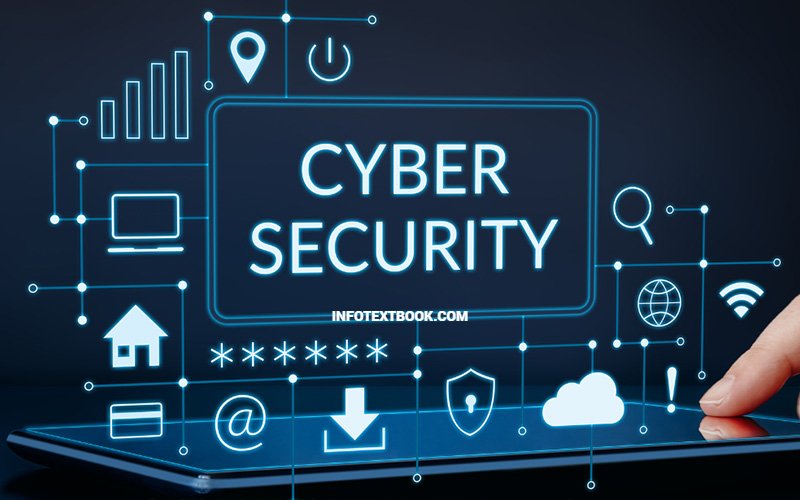Table of Contents
ToggleCyber Security Careers Top Roles, Skills, Salaries & Future Opportunities in 2025

Introduction
The rise of digital transformation and the increasing number of cyber threats have made Cyber Security Careers one of the most sought-after professions in 2025. With organizations, governments, and startups investing heavily in data protection, demand for skilled cyber security experts is at an all-time high. In this article, we will explore the top roles, required skills, salary expectations, and future opportunities in the field of Cyber Security Careers.
What Are Cyber Security Careers?
Cyber security involves protecting systems, networks, and sensitive data from cyberattacks, hacking, and digital fraud. Cyber Security Careers range from entry-level analysts to highly specialized roles like ethical hackers and chief information security officers (CISOs). Professionals in this domain are responsible for ensuring digital safety, identifying vulnerabilities, and implementing protective strategies.
Top Cyber Security Roles in 2025
In 2025, the demand for cyber security experts has expanded into diverse industries such as banking, healthcare, IT, government, and defense. Popular job roles include:
Cyber Security Analyst – Monitors systems, detects threats, and prevents attacks.
Penetration Tester (Ethical Hacker) – Simulates attacks to find vulnerabilities.
Security Architect – Designs secure IT infrastructure.
Incident Response Specialist – Handles breaches and minimizes damage.
Chief Information Security Officer (CISO) – Leads overall security strategy.
Essential Skills for Cyber Security Professionals
To build a successful career in cyber security, professionals must develop both technical and soft skills, including:
Network Security and encryption knowledge
Cloud Security and data protection
Threat Analysis and risk management
Programming skills (Python, C++, Java, etc.)
Problem-solving and critical thinking
Employers are increasingly seeking certified professionals with credentials such as CEH, CISSP, CompTIA Security+, and CISM.
Salary Trends in Cyber Security Careers
The growth in demand has led to lucrative salaries in Cyber Security Careers. Average salaries in 2025 include:
Entry-Level Analyst: ₹5–8 LPA in India / $60,000–$80,000 annually in the US
Penetration Tester: ₹10–15 LPA in India / $85,000–$100,000 in the US
Security Architect: ₹18–25 LPA in India / $120,000–$140,000 in the US
CISO: ₹40+ LPA in India / $180,000–$250,000 in the US
The salary range depends on certifications, experience, and specialization.
Future Opportunities in Cyber Security
The future of Cyber Security Careers looks promising, with AI, IoT, and cloud computing driving new challenges and opportunities. Some emerging trends include:
AI-driven security systems to combat advanced threats.
Expansion of cyber security roles in healthcare, fintech, and e-commerce.
Remote cyber security jobs becoming more common.
Growing importance of data privacy laws and compliance.
With cybercrime predicted to cost trillions globally, organizations will continue to hire more professionals, making cyber security one of the safest and fastest-growing career paths
Introduction

Introduction
In today’s digital-first world, every individual and organization depends on technology for communication, transactions, and operations. While this dependence brings convenience, it also creates opportunities for cybercriminals to exploit weaknesses in digital systems. As a result, protecting sensitive information has become one of the most urgent priorities for governments, corporations, and even small businesses. This urgent demand has opened the doors to exciting opportunities in Cyber Security Careers, making it one of the fastest-growing and most rewarding fields in 2025.
Cyber security is no longer limited to IT companies. Banking, healthcare, education, e-commerce, and government agencies are all vulnerable to data breaches and digital attacks. A single cyberattack can cost millions of dollars and damage the reputation of even the most established organizations. This growing threat landscape ensures that professionals with the right skills and certifications will always remain in demand. Pursuing Cyber Security Careers provides not only financial stability but also the chance to play a crucial role in protecting the digital backbone of modern society.
Another reason behind the increasing popularity of this field is the diversity of career options it offers. From ethical hacking and network security analysis to cloud protection and digital forensics, the scope is vast. Many professionals are also drawn to the idea of solving complex problems and staying ahead of cybercriminals. As cyber threats evolve with technologies like artificial intelligence and the Internet of Things, cyber security experts will constantly face new challenges that keep their work engaging and impactful.
For students and professionals considering a career transition, cyber security offers global opportunities. Countries across the world are experiencing a shortage of qualified experts, meaning job seekers can explore roles not just locally but internationally. Certifications such as CEH (Certified Ethical Hacker), CISSP (Certified Information Systems Security Professional), and CompTIA Security+ further enhance employability and earning potential.
The future of Cyber Security Careers is promising, with reports predicting millions of new jobs worldwide by the end of the decade. Organizations will continue to invest heavily in securing data, applications, and infrastructure, making this one of the most resilient career paths in the digital era. For anyone passionate about technology, problem-solving, and digital safety, a career in cyber security offers both professional growth and the satisfaction of making a real-world impact.
What Are Cyber Security Careers?

What Are Cyber Security Careers?
In today’s digital-first world, data has become the most valuable asset. With organizations relying heavily on technology, the demand for professionals who can protect digital assets is rapidly increasing. This is where Cyber Security Careers play a vital role. These careers focus on defending computer systems, networks, and sensitive information from hackers, malware, and cyber threats.
The Scope of Cyber Security Careers
Cyber security is not limited to IT companies. Banks, hospitals, government agencies, e-commerce firms, and even educational institutions require security professionals. The growth of artificial intelligence, cloud computing, and the Internet of Things (IoT) has created new opportunities and challenges, making Cyber Security Careers one of the fastest-growing job sectors in the world.
Roles in Cyber Security
Careers in this field include diverse roles such as:
Security Analysts – Monitoring systems and detecting unusual activities.
Penetration Testers (Ethical Hackers) – Identifying vulnerabilities by simulating attacks.
Security Architects – Designing secure systems and networks.
Incident Response Specialists – Managing breaches and minimizing risks.
CISOs (Chief Information Security Officers) – Leading organization-wide cyber strategies.
Each role requires specialized knowledge, certifications, and problem-solving skills.
Skills Needed for Success
To excel in Cyber Security Careers, professionals must master technical skills such as network security, cloud protection, and data encryption. Knowledge of programming languages like Python, C++, and Java is valuable. Equally important are soft skills like analytical thinking, decision-making, and the ability to work under pressure. Certifications such as CISSP, CEH, and CompTIA Security+ give candidates an added advantage in the competitive job market.
The Future of Cyber Security Careers
The future of cyber security looks promising. As cyberattacks become more advanced, organizations are investing heavily in protection systems. With cybercrime damages expected to cost trillions globally, skilled experts will remain in high demand. Students and professionals entering this field today are securing long-term career stability, attractive salaries, and opportunities across industries.
Top Cyber Security Roles in 2025

Top Cyber Security Roles in 2025
In today’s digital first economy, the demand for cyber security experts is higher than ever. With cyber threats becoming more sophisticated, companies are investing heavily in skilled professionals to protect their data and systems. For students and professionals exploring Cyber Security Careers, 2025 offers a wide range of exciting opportunities across industries such as IT, banking, healthcare, and government.
Leading Cyber Security Roles in 2025
1. Cyber Security Analyst
Cyber Security Analysts are the backbone of organizational defense. They monitor networks, detect suspicious activity, and respond to threats in real time. Analysts also conduct vulnerability assessments and recommend security measures to strengthen IT infrastructure.
2. Penetration Tester (Ethical Hacker)
Penetration Testers, or ethical hackers, simulate cyberattacks to identify weaknesses before criminals exploit them. In 2025, this role is one of the most in-demand, especially with businesses adopting cloud services and digital platforms.
3. Security Architect
Security Architects design secure frameworks for organizations. They develop policies, oversee implementation, and ensure compliance with industry standards. Their expertise ensures that IT systems remain resilient against attacks.
4. Incident Response Specialist
When a cyberattack occurs, Incident Response Specialists step in to minimize damage. They investigate breaches, recover data, and implement preventive strategies. Their quick decision-making skills are critical in reducing risks.
5. Chief Information Security Officer (CISO)
A CISO is a senior executive who leads the entire cyber security strategy of an organization. In 2025, as cyber threats escalate, the role of the CISO is central to aligning business objectives with robust security frameworks.
Skills Driving These Roles
The success of these positions depends on a blend of technical and soft skills. Professionals must master network security, cloud protection, encryption, programming, and risk management, while also demonstrating problem-solving and leadership abilities. Certifications like CISSP, CEH, and CompTIA Security+ will give candidates an edge in pursuing advanced Cyber Security Careers.
Essential Skills for Cyber Security Professionals

Essential Skills for Cyber Security Professionals
The demand for skilled professionals in the digital era has grown rapidly, making Cyber Security Careers one of the most rewarding and future-proof choices in 2025. Organizations worldwide are seeking experts who can protect sensitive information, manage risks, and safeguard systems against increasingly complex cyber threats. To succeed in this competitive field, mastering essential skills is crucial.
1. Strong Technical Knowledge
A successful cyber security professional must have a solid foundation in network security, operating systems, and encryption technologies. Understanding firewalls, intrusion detection systems, and secure coding practices ensures that professionals can prevent attacks before they occur.
2. Threat Analysis and Risk Management
The ability to identify vulnerabilities and predict potential risks is vital. Cyber security experts must evaluate security frameworks, conduct penetration testing, and develop strategies to minimize damage during cyber incidents. Risk management is at the heart of every security plan.
3. Cloud and Data Security
With the growth of cloud computing, protecting data stored in virtual environments is essential. Professionals should be well-versed in cloud platforms, data encryption, and compliance standards like GDPR and HIPAA. This knowledge enhances career opportunities in modern Cyber Security Careers.
4. Programming and Analytical Skills
Coding skills in Python, C++, or Java give professionals the edge to detect vulnerabilities and automate security tasks. Alongside programming, analytical thinking and problem-solving abilities help professionals respond quickly to evolving threats.
5. Certifications and Continuous Learning
Certifications such as CEH, CISSP, CISM, and CompTIA Security+ add immense value to a professional’s profile. In addition, cyber security is a fast-changing field that requires continuous learning through workshops, online training, and real-world practice.
6. Soft Skills and Communication
Technical knowledge alone is not enough. Professionals must communicate effectively with teams, explain risks to non-technical stakeholders, and build strong collaborative networks. Leadership, adaptability, and decision-making skills enhance long-term growth in Cyber Security Careers.
Salary Trends in Cyber Security Careers

Salary Trends in Cyber Security Careers
The digital revolution has transformed how organizations operate, but it has also increased the risk of cyber threats. To counter these challenges, the demand for skilled professionals in Cyber Security Careers has grown exponentially. One of the most attractive aspects of this field is the competitive salary packages offered across various roles, making it one of the most lucrative career paths in 2025.
Entry Level Salaries
Fresh graduates or professionals transitioning into cyber security can expect strong starting salaries compared to other IT roles. In India, an entry-level cyber security analyst earns between ₹5–8 LPA, while in the US, starting salaries range from $60,000–$80,000 annually. These figures reflect the critical role even junior professionals play in protecting organizational data.
Mid Level Professionals
As professionals gain 3–7 years of experience, their earnings rise significantly. Penetration testers, also known as ethical hackers, earn ₹10–15 LPA in India and around $85,000–$100,000 in the US. Security consultants and architects, who design secure IT infrastructures, earn between ₹15–25 LPA in India and $110,000–$140,000 in the US. Their expertise in safeguarding networks and systems ensures steady demand and salary growth.
Senior Level Salaries
At the top of the ladder, senior professionals like Chief Information Security Officers (CISOs) enjoy some of the highest salaries in the technology sector. In India, CISOs earn ₹40 LPA and above, while in the US, compensation ranges from $180,000–$250,000 annually. These positions demand leadership, strategic decision-making, and the ability to manage large-scale security operations.
Factors Influencing Salaries
Salaries in Cyber Security Careers vary based on several factors:
Certifications: Credentials like CISSP, CISM, CEH, and CompTIA Security+ boost earning potential.
Industry: Finance, healthcare, and government sectors often pay higher due to sensitive data protection needs.
Location: Urban centers and global hubs like Bangalore, New York, and London offer higher salaries.
Skills: Proficiency in cloud security, AI-driven threat detection, and advanced forensics leads to premium salaries.
Future Opportunities in Cyber Security

Future Opportunities in Cyber Security
The future of cyber security is becoming increasingly important as the world embraces digital transformation. With rapid advancements in cloud computing, artificial intelligence (AI), and the Internet of Things (IoT), cyber threats are becoming more sophisticated. This shift has created massive future opportunities in cyber security for professionals who are ready to take on new challenges.
One of the key opportunities lies in AI-driven security solutions. Organizations are adopting artificial intelligence and machine learning to predict, detect, and respond to threats faster than ever before. As a result, experts who can design, manage, and analyze these AI-driven systems will be in high demand. This opens doors for professionals in Cyber Security Careers to specialize in AI-integrated security systems.
Another emerging area is cloud security. With most businesses moving their data and applications to the cloud, protecting sensitive information has become a top priority. Companies are seeking skilled specialists who can implement encryption, monitoring, and compliance measures across multi-cloud environments. Cloud security experts will continue to be among the most sought-after professionals.
The Internet of Things (IoT) is also reshaping the security landscape. From smart homes to connected healthcare devices, billions of IoT gadgets are vulnerable to cyberattacks. This creates opportunities for cyber security professionals to focus on device authentication, secure communication, and privacy protection in a hyperconnected world.
In addition, the rise of data privacy laws like GDPR and India’s Digital Data Protection Act has created a need for compliance experts. Organizations must not only defend against attacks but also ensure legal compliance to avoid penalties. Professionals who can bridge the gap between technical security and regulatory frameworks will have a strong edge.
Remote work has also fueled demand for endpoint security and identity management solutions. Companies are increasingly hiring cyber experts to secure digital workplaces and manage access across distributed teams. This trend ensures long-term growth for those pursuing Cyber Security Careers in 2025 and beyond.
Final Thoughts

Final Thoughts
In today’s digital first economy, cyber security is no longer an optional fieldit has become a necessity across every sector. As cyber threats grow in frequency and sophistication, the need for skilled professionals continues to rise. Choosing Cyber Security Careers in 2025 offers not just job security but also the chance to be part of a rapidly evolving and highly impactful industry.
One of the greatest advantages of working in cyber security is the diversity of roles available. From ethical hackers and analysts to CISOs and security architects, there is a pathway for every skill set and level of expertise. The growing reliance on cloud computing, artificial intelligence, and the Internet of Things ensures that this field will keep evolving, creating new opportunities for those willing to learn and adapt.
Moreover, the financial rewards in Cyber Security Careers are significant, with salaries often surpassing other IT domains. Beyond monetary benefits, professionals in this field play a critical role in safeguarding sensitive data, protecting businesses, and ensuring national security.
For students and professionals considering future-proof careers, cyber security stands out as one of the most rewarding and secure paths in the digital era.
FAQs Cyber Security Careers
Q1. What are Cyber Security Careers?
Cyber Security Careers involve protecting computer systems, networks, and data from cyberattacks, hacking, and digital fraud. Professionals work in roles like security analysts, ethical hackers, and CISOs to safeguard digital assets.
Q2. Is cyber security a good career in 2025?
Yes, cyber security is one of the fastest-growing fields in 2025. With the rise of AI, cloud computing, and cybercrime, demand for skilled professionals in Cyber Security Careers is at an all-time high.
Q3. What skills are required for Cyber Security Careers?
Key skills include network security, penetration testing, encryption, risk management, programming (Python, C++, Java), and certifications like CEH, CISSP, or CompTIA Security+.
Q4. What is the average salary in Cyber Security Careers?
Entry-level professionals earn around ₹5–8 LPA in India ($60,000–$80,000 in the US). Senior roles like Security Architects and CISOs can earn ₹25–40 LPA in India ($150,000–$250,000 in the US).
Q5. How do I start a career in cyber security?
To begin, pursue a degree in IT or computer science, take cyber security certifications, gain hands-on experience with security tools, and apply for entry-level analyst roles.
Q6. What is the future of Cyber Security Careers?
The future is bright, with opportunities in AI-driven security, cloud protection, IoT safety, and remote security jobs. Cyber Security Careers will continue to grow globally due to rising cyber threats.






